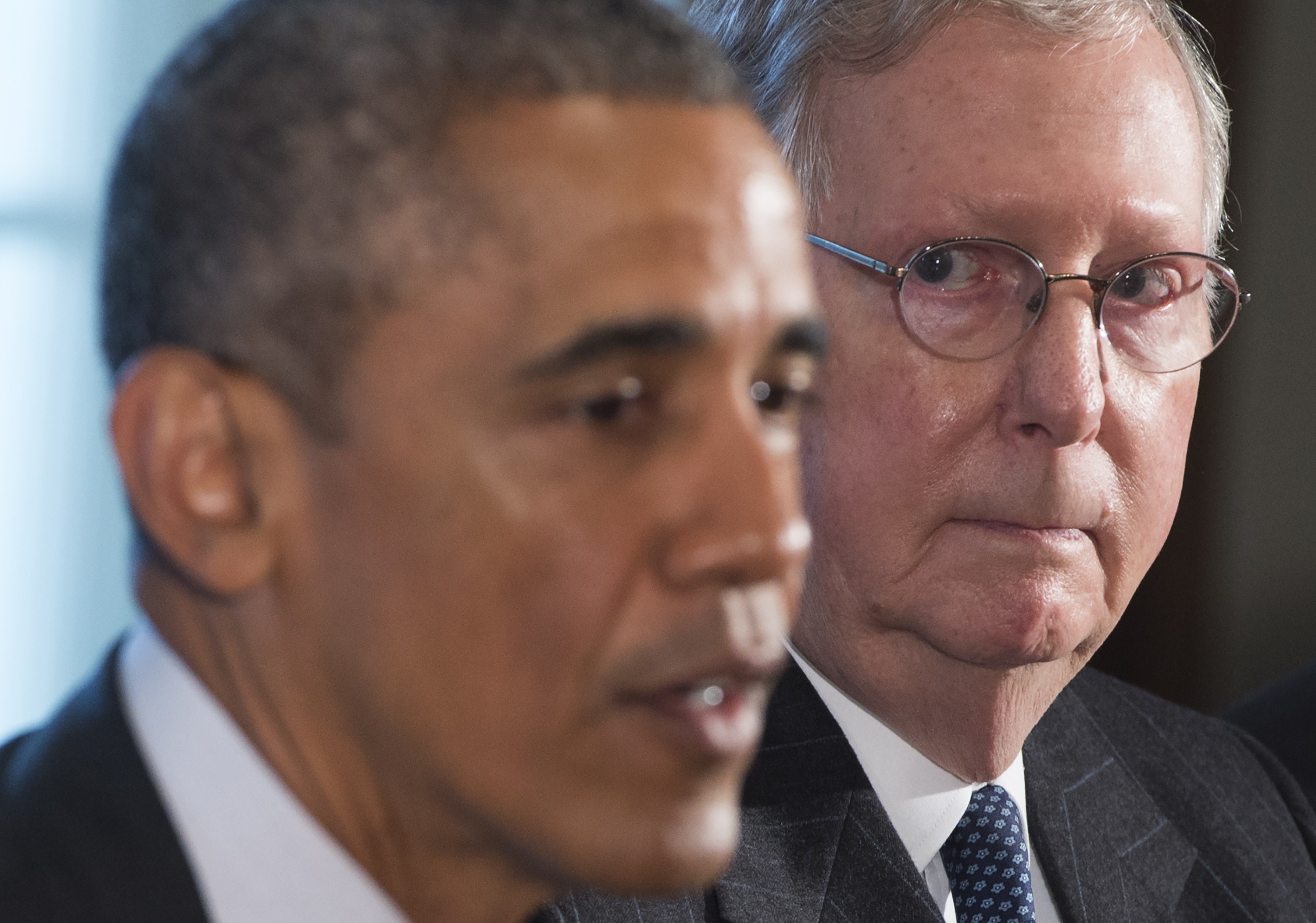GOP is trying to sink Obama's global climate pact by assuring world the U.S. won't do its part


A free daily email with the biggest news stories of the day – and the best features from TheWeek.com
You are now subscribed
Your newsletter sign-up was successful
President Obama has spent at least a year talking with fellow world leaders about reaching a comprehensive agreement to address climate change at a global summit in Paris in December. He may be talking the talk, congressional Republicans have been saying in their own outreach to foreign countries, but America won't walk the walk.
Neil Chatterjee, a top aide to Senate Majority Leader Mitch McConnell (R-Ky.), has been reaching out to selected developed and developing countries "that have long expressed doubts about the sincerity of the United States' climate efforts," Politico reports, telling them they are right to be skeptical, in part because "Republicans intend to fight Obama's climate agenda at every turn." Obama is pushing for a political agreement, not a treaty, so he won't have to get the accord ratified in the GOP-led Senate — where it has "no chance" of getting a two-thirds majority, a Republican energy lobbyist tells Politico. "There are few certainties in life, but that is one of them."
The Obama administration doesn't seem to think Republicans will be any more successful in this push than they were when they wrote Iranian leaders warning them to abandon the nuclear deal. But because it won't be a treaty, a future president could theoretically renege on U.S. commitments. "You live by the rhetoric, you die by the rhetoric," says Jeremy Rabkin, a George Mason University professor and critic of Obama's climate policies.
The Week
Escape your echo chamber. Get the facts behind the news, plus analysis from multiple perspectives.

Sign up for The Week's Free Newsletters
From our morning news briefing to a weekly Good News Newsletter, get the best of The Week delivered directly to your inbox.
From our morning news briefing to a weekly Good News Newsletter, get the best of The Week delivered directly to your inbox.
A free daily email with the biggest news stories of the day – and the best features from TheWeek.com
Peter has worked as a news and culture writer and editor at The Week since the site's launch in 2008. He covers politics, world affairs, religion and cultural currents. His journalism career began as a copy editor at a financial newswire and has included editorial positions at The New York Times Magazine, Facts on File, and Oregon State University.
-
 The Olympic timekeepers keeping the Games on track
The Olympic timekeepers keeping the Games on trackUnder the Radar Swiss watchmaking giant Omega has been at the finish line of every Olympic Games for nearly 100 years
-
 Will increasing tensions with Iran boil over into war?
Will increasing tensions with Iran boil over into war?Today’s Big Question President Donald Trump has recently been threatening the country
-
 Corruption: The spy sheikh and the president
Corruption: The spy sheikh and the presidentFeature Trump is at the center of another scandal
-
 The plan to wall off the ‘Doomsday’ glacier
The plan to wall off the ‘Doomsday’ glacierUnder the Radar Massive barrier could ‘slow the rate of ice loss’ from Thwaites Glacier, whose total collapse would have devastating consequences
-
 Can the UK take any more rain?
Can the UK take any more rain?Today’s Big Question An Atlantic jet stream is ‘stuck’ over British skies, leading to ‘biblical’ downpours and more than 40 consecutive days of rain in some areas
-
 As temperatures rise, US incomes fall
As temperatures rise, US incomes fallUnder the radar Elevated temperatures are capable of affecting the entire economy
-
 The world is entering an ‘era of water bankruptcy’
The world is entering an ‘era of water bankruptcy’The explainer Water might soon be more valuable than gold
-
 Climate change could lead to a reptile ‘sexpocalypse’
Climate change could lead to a reptile ‘sexpocalypse’Under the radar The gender gap has hit the animal kingdom
-
 The former largest iceberg is turning blue. It’s a bad sign.
The former largest iceberg is turning blue. It’s a bad sign.Under the radar It is quickly melting away
-
 How drones detected a deadly threat to Arctic whales
How drones detected a deadly threat to Arctic whalesUnder the radar Monitoring the sea in the air
-
 ‘Jumping genes’: how polar bears are rewiring their DNA to survive the warming Arctic
‘Jumping genes’: how polar bears are rewiring their DNA to survive the warming ArcticUnder the radar The species is adapting to warmer temperatures
